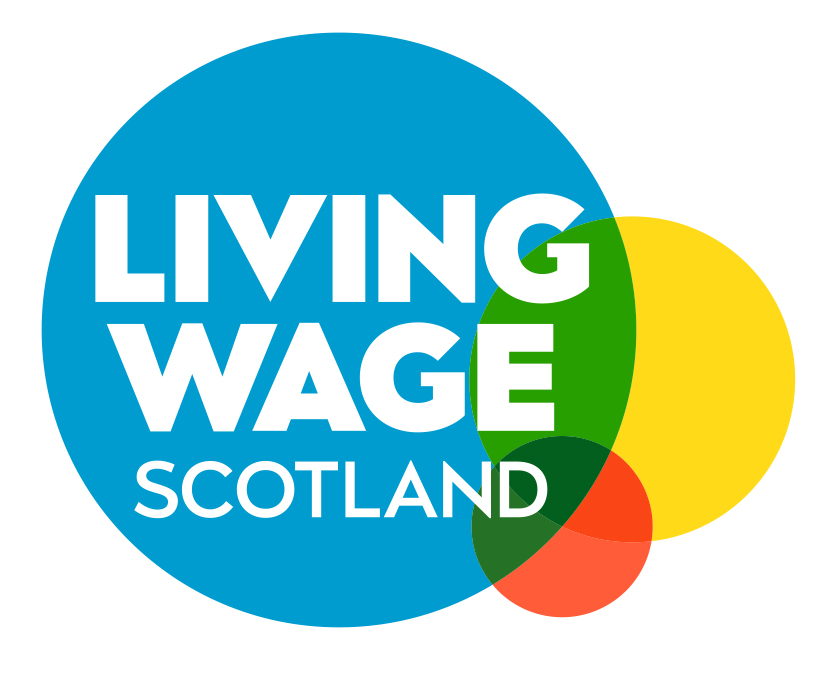by Lynn Anderson, Living Wage Scotland
International Women’s Day provides an opportunity to reflect on progress made on gender equality, and to highlight the need for further action.
On wages, the most recent ONS labour market data shows improvements on the number of workers in Scotland earning at least the real Living Wage – now over 84%, positioning Scotland as the best performing of the four UK nations on this measure. Despite the progress made, too many workers are still earning less than the voluntary benchmark for fair pay. Of the 350,000 workers in Scotland earning less than the real Living Wage, almost 60% are women.
One reason is that women workers tend to be clustered in low paid occupations, in roles often perceived as ‘women’s work’: such as cleaning, care work, hospitality & retail. Women are also more likely to work in these roles part-time, placing a limit on take-home earnings and on opportunities for career progression. Women are at increased risk of in-work poverty as a result, and this is further affected by lack of access to affordable, good quality childcare and workplace flexibility.
Roles that have been persistently undervalued and under paid are also those that are largely perceived as ‘women’s work’. For example – in Scotland, women make up 83% of health and social care workforce. Amid the pandemic, we are reframing the value of many of these roles as ‘key’ and ‘essential’.
It is not right that while women in key and essential roles have worked hard to keep us safe and keep our society functioning during the pandemic, many are earning less than the real Living Wage.
The harmful impacts of low pay have been exacerbated during the pandemic. Recent research by Living Wage Foundation shone a light on these negative effects, with low paid workers reporting a negative impact on financial security, family life, mental and physical health as a result of low pay. Over two-thirds (67%) had seen their pay fall over the past year as a result of the pandemic, and many unable to heat their homes, falling behind with household bills or regularly skipping meals for financial reasons.
These harms are more acute for women in our labour market, who have shouldered additional burdens of unpaid care and are more likely to have had their income reduced through furlough or redundancy during the pandemic.
Joseph Rowntree Foundation reported in October 2020 that even before coronavirus, around a million people in Scotland were in poverty. These rates are rising, and we know that child poverty rates are linked with women’s low pay. Urgent and collective action is needed to release people in Scotland from the grip of poverty, and one action that employers can choose to take is to become an accredited Living Wage employer.
It is encouraging that despite the uncertain economic context, over 200 employers in Scotland have become Living Wage accredited during the pandemic, joining a growing movement of over 1900 Scottish employers committed to ensuring workers have enough to meet their everyday needs. Importantly, accreditation means the real Living Wage reaches regular contract workers in the supply chain such as cleaning, catering, and ancillary workers, jobs which are often more likely to be filled by women.
A snapshot analysis of Living Wage accreditation data in Scotland found that of the workers benefitting from a pay increase to the real Living Wage as a result of their employer becoming accredited, most were women (66%), and most were working part time.
The theme of International Women’s Day 2021 is #ChooseToChallenge. In the context of economic uncertainty, it is important that we challenge the assumption that any work takes precedence over good work. Good work offers decent pay, fair conditions alongside opportunities for training and progression. Good work can benefit our lives, our communities and can contribute to a sustainable and just economy.
When we collectively work to ensure that good work is at the heart of our labour market, we will emerge as a stronger, more compassionate society. Paying at least the real Living Wage is a sensible and necessary investment for businesses of the future, to help recruit and retain talent and to publicly signal responsible practice on tackling low pay. When employers choose to benchmark pay as against the real Living Wage, women workers stand to gain the most.
We encourage our network of over 1900 employers to celebrate their Living Wage accreditation this International Women’s Day on twitter, and tag us @LivingWageScot
To find out more on becoming accredited, get in touch at accreditation@povertyalliance.org

